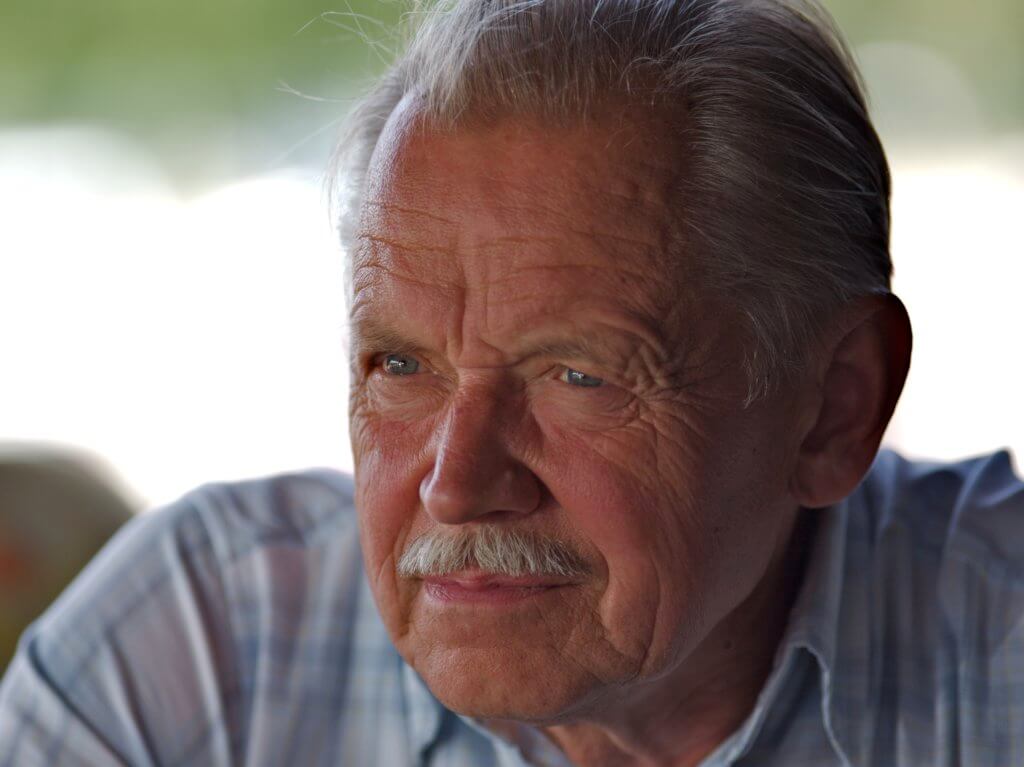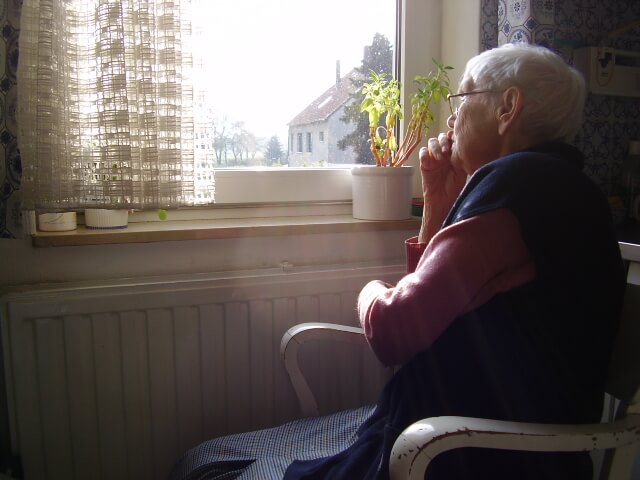Getting older can be scary. We worry about weaker bones and osteoporosis. We worry about losing our balance and falling, which can lead to serious injury. And many of us worry about losing our memory. Older adults and their family members should know that there is a difference between becoming a little more forgetful (what some elders call their “senior moments”) and the early signs of dementia.

Dementia is more than being forgetful; it’s categorized by the loss of cognitive skills, or the way that a person can consider and make decisions. The National Institutes of Health explain that compared to mild forgetfulness, dementia impacts daily life, interferes with decision-making, and affects every-day tasks. Dementia can affect “memory, language skills, visual perception, and the ability to focus and pay attention.” It is caused by damage to brain cells; when the brain’s cells can’t communicate properly, the way we navigate the world around us is affected.
Dementia is not always permanent. It can be caused by excess fluid in the brain (normal pressure hydrocephalus), infections, head injuries and brain tumors, or reactions to alcohol or medication. If these conditions are treated, it is possible that the dementia will recede.

Unfortunately, most causes of dementia are irreversible. Alzheimer’s disease is the most common cause of dementia, accounting for as much as 80% of dementia cases. Alzheimer’s causes permanent changes in the brain, affecting short-term memory and learning at first, and eventually causing almost complete memory loss. Other irreversible causes of dementia include vascular dementia, dementia with Lewy bodies and Parkinson’s disease. Some people have a combination of conditions that cause the dementia, referred to as mixed dementia.
If you or a loved one is concerned about recent memory loss, the Alzheimer’s Association has posted 10 early signs that you might be at risk of dementia or Alzheimer’s disease. If you are starting to feel confused when you solve problems, have issues completing familiar tasks at home or at work, or feel yourself withdrawing from work or social activities, it may be time to talk to your physician about whether you’re at risk for dementia.

While irreversible dementia isn’t curable, the process can be slowed with both medications (prescribed by your doctor) and some types of rehabilitation therapy. Specially trained speech-language pathologists help patients with dementia and memory loss retain cognitive skills as long as possible. According to the American Speech-Language-Hearing Association, the professional organization of speech-language pathologists, SLPs focus on the “cognitive aspects of communication, including attention, memory, sequencing, problem solving, and executive functioning.”
Others on the rehabilitation team can also help people with dementia. Occupational therapists can help to set up safe environments without obstacles; if the person is still living at home in the early stages of dementia, an OT can do an assessment to reduce the risk of falling and remove the risk of dangerous items (like flammable liquids or the use of the stove). OTs and SLPs can create a home environment where reminders are posted about daily tasks, helping the patient to remain independent for as long as possible. And physical therapists can work with the person to keep her physically active for as long as she is able, which can also contribute to slowing down memory loss, while reducing the chances of falling.
Dementia information page. National Institute of Neurological Disorders and Stroke, part of the National Institutes of Health.
Physiquality.
- Can you improve your memory as you age? December 2, 2014.
- What is osteoporosis? Can it be prevented? August 15, 2014.
The Alzheimer’s Association.
- 10 early signs and symptoms of Alzheimer’s.
- Normal pressure hydrocephalus.
- Types of dementia.
- What is Alzheimer’s?
- What is dementia?
Dementia: Symptoms and causes. Mayo Clinic.
Dementia. American Speech-Language-Hearing Association.
Physical therapy guide to Alzheimer’s disease. American Physical Therapy Association, May 10, 2011.
Alzheimer’s disease tip sheet. American Occupational Therapy Association, 2011.
“Elderly woman + her view” by Borya is licensed under CC BY-SA 2.0.
“Riga Old Man” by liber is licensed under CC BY-SA 2.0.